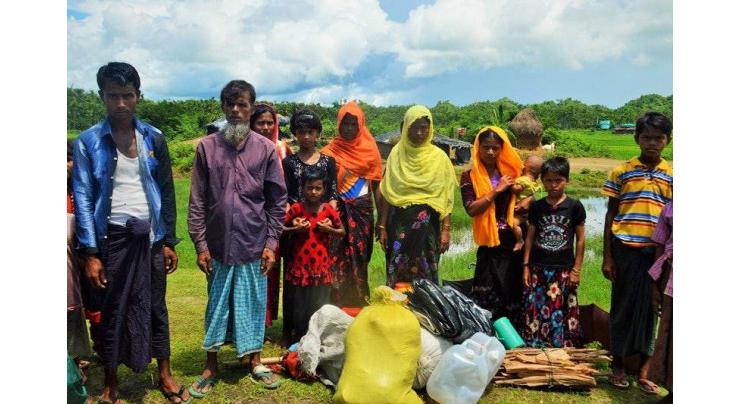
- Home
- World
- News
- EU-Libya Migration Cooperation Results in 'Extreme Abuse' of Refugees in Libya - Watchdog
EU-Libya Migration Cooperation Results In 'Extreme Abuse' Of Refugees In Libya - Watchdog
Fakhir Rizvi Published January 21, 2019 | 12:55 PM

The EU support for the Libyan Coast Guard in intercepting EU-bound boats and detaining migrants and asylum seekers contributes to "a cycle of extreme abuse" against refugees in the African country, a prominent human rights watchdog said in a report on Monday
MOSCOW (UrduPoint News / Sputnik - 21st January, 2019) The EU support for the Libyan Coast Guard in intercepting EU-bound boats and detaining migrants and asylum seekers contributes to "a cycle of extreme abuse" against refugees in the African country, a prominent human rights watchdog said in a report on Monday.
The report by Human Rights Watch reveals that migrants and asylum seekers, detained in Libya with EU help, "are trapped in a nightmare," due to severe overcrowding, unsanitary conditions, malnutrition, and lack of adequate health care.
"Yet since 2016, the EU and particular member states have poured millions of Euros into programs to beef up the Libyan Coast Guard's capacity to intercept boats leaving Libya, fully aware that everyone is then automatically detained in indefinite, arbitrary detention without judicial review," the report said.
The watchdog believes that in an effort to prevent refugees from crossing into Europe and by enabling the Libyan Coast Guard to intercept people in international waters, the EU authorities are contributing to "serious human rights violations.
"
"Italy - the EU country where the majority of migrants departing Libya have arrived - has taken the lead in providing material and technical assistance to the Libyan Coast Guard forces and abdicated virtually all responsibility for coordinating rescue operations at sea, to limit the number of people arriving on its shores," the report said.
The European Union has been experiencing a large-scale migration crisis since 2015 due to the influx of thousands of migrants fleeing crises in the middle East and North Africa. Earlier in January, the International Organization for Migration (IOM) stated that 4,216 migrants and refugees had entered Europe by sea through the first 16 days of 2019, a nearly twofold increase in comparison to the same period of last year.
Related Topics
Recent Stories

Currency Rate In Pakistan - Dollar, Euro, Pound, Riyal Rates On 26 April 2024

Today Gold Rate in Pakistan 26 April 2024

ICC Womens T20 World Cup Qualifier, Match 2: Ireland Women open with Comfortable ..

Robinson, bowlers help New Zealand go 2-1 up against Pakistan

Shahzeb Chachar to hold khuli kachehri on April 26

Heatwave amid Israel's aggression in Gaza brings new misery, disease risk

Tourism must change, mayor says as Venice launches entry fee

Court adjourns Judicial Complex attack case till May 17

Nasreen Noori’s book ‘Popatan Jahra Khwab’ launched

Wafaqi Mohtasib inspection team visits Excise and taxation office

AJLAC announces 5th Conference titled ‘People’s Mandate: Safeguarding Civil ..

Pak-US officials engage to enhance trade, investment ties
More Stories From World
-
China warns Blinken over deteriorating ties in talks
35 seconds ago -
Famine-threatened Sudan's 'race against time' to plant crops
11 minutes ago -
Microsoft, Google earnings shine as AI drives revenue
30 minutes ago -
Man City crush Brighton to close gap on Arsenal in title race
31 minutes ago -
Atletico face Bilbao challenge in Champions League race
40 minutes ago -
Man City in title groove as Arsenal face Spurs test
41 minutes ago
-
Japan anime studio draws on talent of autistic artists
1 hour ago -
Pakistan needs strong defence in view of its location in 'rough' neighbourhood: Masood Khan
1 hour ago -
Bangladesh children sweat at home as heatwave shuts schools
1 hour ago -
Iconic shared Olympic gold moment will not be repeated, says Barshim
1 hour ago -
Bangladesh children sweat at home as heatwave shuts schools
2 hours ago -
Pakistani 'Blue Helmets' serving UN Peacekeeping Mission in DR Congo set to leave after 20 years of ..
2 hours ago